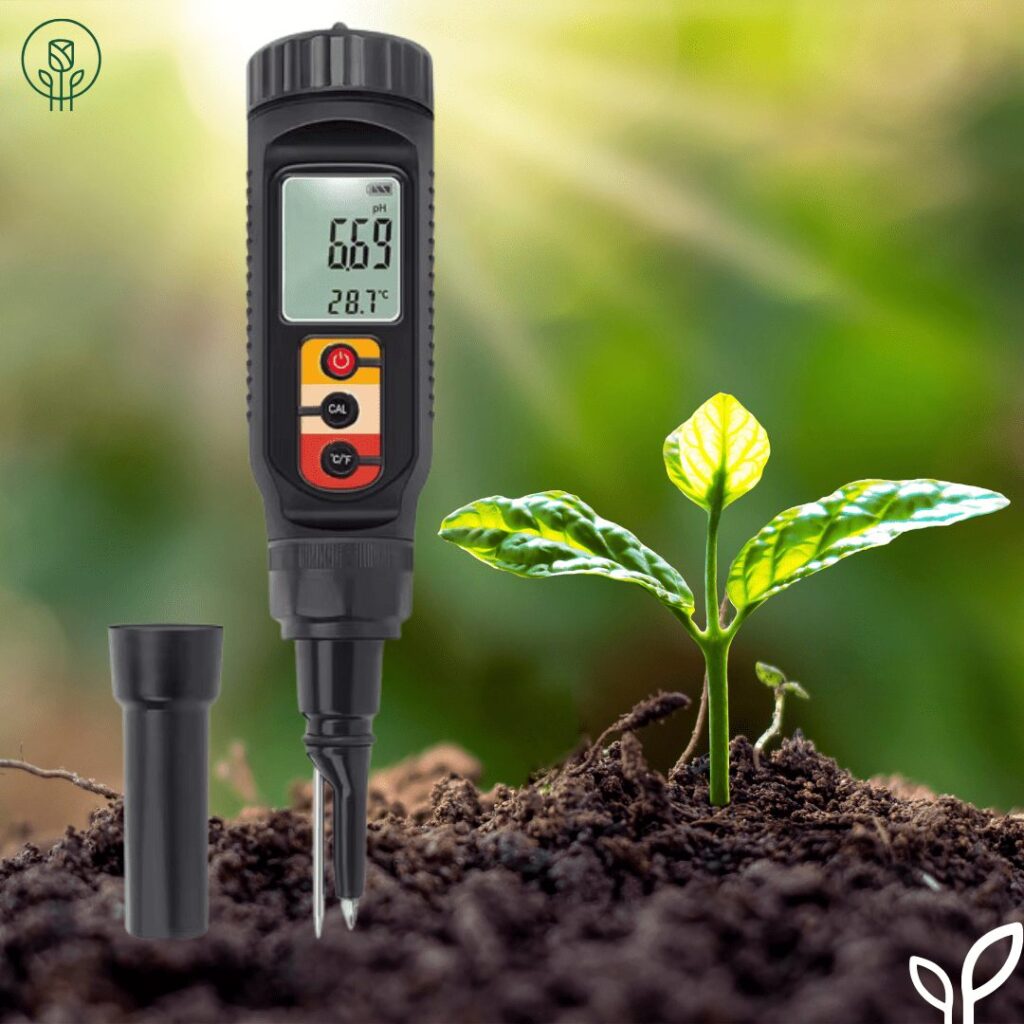Ekosight Technologies Pvt. Ltd. is revolutionizing Indian agriculture with cutting-edge, AI-powered soil testing and nutrient advisory solutions. At the heart of this transformation lies its flagship innovation—the Soil Doctor, a compact, portable device that delivers instant analysis of soil pH, electrical conductivity (EC), organic carbon, and nutrient levels. As a result, farmers receive real-time, hyper-local fertilizer recommendations tailored to their specific soil conditions.
By eliminating the wait for lab-based testing, Ekosight empowers over 2,000 farmers across more than 3,000 acres with timely, data-backed insights. Its end-to-end support spans the full cultivation cycle—right from soil sampling and land preparation to water usage, pest control, and nutrient management. Every step is streamlined, efficient, and science-driven.
The impact is both measurable and meaningful. Farmers report a 25–30% increase in crop yields and seasonal cost savings of ₹10,000–15,000, clearly demonstrating the value of precision agriculture at the grassroots. Ekosight’s strategic partnerships with Farmer Producer Organizations (FPOs) and NGOs further amplify its reach, delivering tangible benefits where they’re needed most.
In an exclusive interview with The Interview World at the PRAGATI Founders Forum 2025, hosted by iHub-AWaDH at IIT Ropar, Saumya Rawat, Co-founder of Ekosight Technologies, offers a deep dive into the startup’s soil intelligence solutions. She explains the essential components of the Soil Doctor kit, details the variety of tests conducted, outlines the kit’s cost-effectiveness, and shares real-world feedback from farmers using the device in the field.
Here are the key insights from her compelling conversation.
Q: Can you walk us through the core solutions and key offerings of Ekosight, and how they address the specific needs of farmers?
A: At Ekosight, we are committed to transforming soil health management with a clear vision—to build the Soil Doctor. Just as a medical doctor diagnoses and treats health issues from start to finish, our Soil Doctor guides farmers through the complete journey of soil care—from diagnosis to resolution.
We begin with soil testing, the cornerstone of our approach. To make this process accessible and efficient, we have developed our own rapid and portable soil testing kit. Designed specifically for rural India, the device functions seamlessly in low-resource settings. It runs on batteries, making it completely independent of grid electricity—an essential feature in areas with limited power access.
The kit is low-maintenance and uses carefully selected chemicals to ensure both speed and accuracy in test results. Once the soil is tested, we generate customized fertilizer recommendations tailored to the specific nutrient profile of the land. Farmers receive a comprehensive report that includes both test results and a detailed advisory.
When farmers follow these personalized recommendations, the results are significant. Many report noticeable cost savings by reducing excessive fertilizer use. More importantly, they observe steady improvement in soil health, which directly enhances both the quality and quantity of their produce.
Our work doesn’t stop at the farm level. We collaborate with agri-retailers and support aspiring agri-entrepreneurs, especially youth eager to launch their own ventures. We help them adopt our kit, set up operations, and become local providers of soil intelligence—empowering them to build sustainable businesses while driving agricultural progress.
This is how we are redefining soil care—scientifically, sustainably, and at scale.
Q: Could you describe the types of chemicals and tools included in your soil testing kit?
A: We’ve designed a smart, easy-to-use device that tests soil nutrient solutions with precision. But before the testing begins, it’s essential to prepare the soil solution correctly.
Here’s how it works: Soil, as we know, varies widely in type and nutrient composition. To identify the nutrients present, we first extract them using specially formulated powdered chemicals. Unlike traditional lab-grade solutions that rely on hazardous liquid chemicals, our innovation lies in replacing them with powder-based reagents—a safer, more accessible alternative.
These powdered chemicals are not only non-toxic and easy to handle, but also ideal for use in rural areas. Even individuals without technical training can use them confidently. All you need is a test tube, some soil, clean water, and the powdered chemical. Mix the contents using the shaker provided in the kit, then filter the solution to prepare it for analysis.
Next, pour the filtered solution into a cuvette, insert it into the testing device, and you’re ready to begin. The process is quick, clean, and completely user-friendly.
This simplified, yet scientifically rigorous method ensures that soil testing is no longer confined to labs—it’s now in the hands of the farmers themselves.
Q: What is the typical time required to analyse a single soil sample using your kit?
A: Testing a single soil sample takes one hour. However, processing four to five samples simultaneously reduces the average time per sample to just 45 minutes.
Q: What types of soil tests are available to assess nutrient levels and other critical parameters, and how do they help determine soil health?
A: We provide a comprehensive analysis of the soil’s nutrient status—crucial for informed agricultural planning. Key macronutrients such as nitrogen, phosphorus, and potassium are closely monitored to determine their existing levels in the soil. This allows us to recommend precise quantities of inputs like urea, ammonium sulphate, or other nitrogen sources to optimize crop yield and maintain soil health.
Currently, we test 14 essential parameters. These include core indicators such as pH, electrical conductivity (EC), and most importantly, organic carbon. In addition to nitrogen, phosphorus, and potassium, we also assess secondary nutrients like calcium, magnesium, and sulphur. For a complete picture, we further analyse vital micronutrients—iron, boron, zinc, and copper.
Each parameter plays a pivotal role in supporting healthy, sustainable crop production. By identifying these levels accurately, we empower farmers to make smarter, more sustainable decisions.
Q: What is the cost of your soil testing kit, and who are the primary users?
A: The kit costs ₹65,000. Any agri-retailer or entrepreneur aiming to establish a business in rural areas can invest in this kit and immediately begin offering services to farmers. It’s a practical, impactful way to support local agriculture while building a sustainable enterprise.
Q: Does your company also supply the raw materials and chemicals required for conducting soil tests?
A: We provide a complete starter package, which includes consumables for testing 25 soil samples. After that, users can purchase additional consumables directly from us for the 14 parameters we test. The cost for testing one soil sample across all 14 parameters is ₹250. However, if they choose to test only the six most critical parameters, the cost comes down to ₹150 per sample.
Q: What kind of response have you received from users in the field regarding your product’s performance and usability?
A: We have already deployed over 70 devices on the ground. Many of these are with agribusinesses—ranging from agri-input providers to supply chain companies—who are committed to supporting farmers. Additionally, aspiring rural entrepreneurs have also adopted our solution to launch their own ventures.
Some agri-retailers have purchased the device and trained individuals in their area—often near their shops—to conduct soil testing. These individuals analyse the soil, generate reports, and advise farmers on appropriate actions to improve yield and soil health. We have also partnered with NGOs. Traditionally, they had to send soil samples to distant labs and wait 15 to 20 days for results. Now, with our portable kit, they can test soil instantly at the source. Many NGOs have empowered rural women or men by training them to operate these kits and serve their local farming communities. This approach not only accelerates the testing process but also fosters local employment and strengthens grassroots agricultural support.









